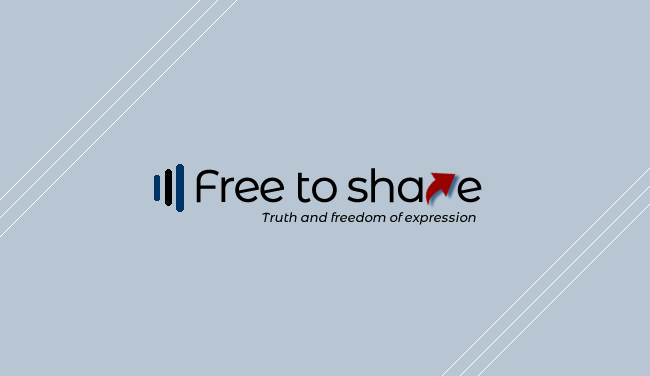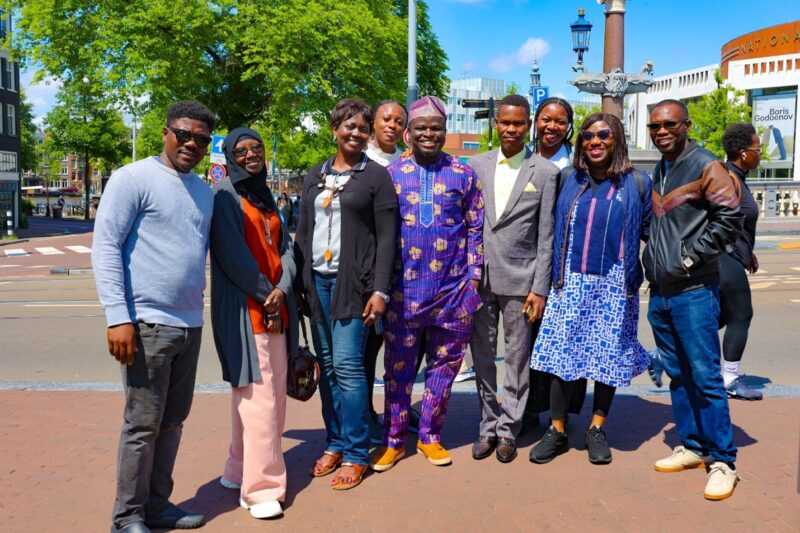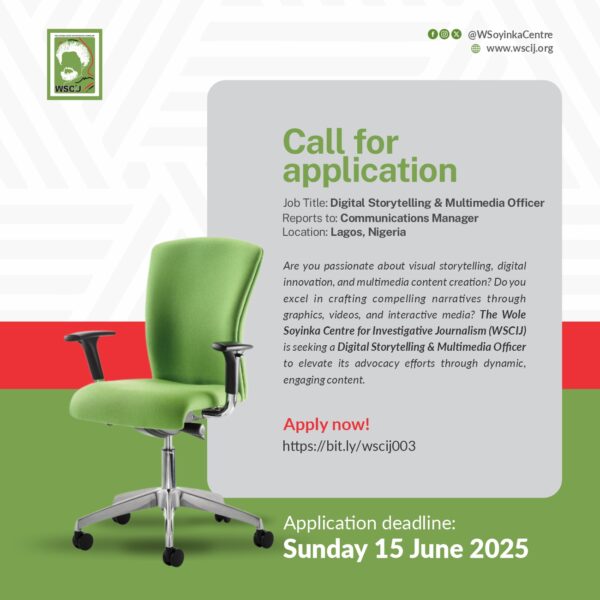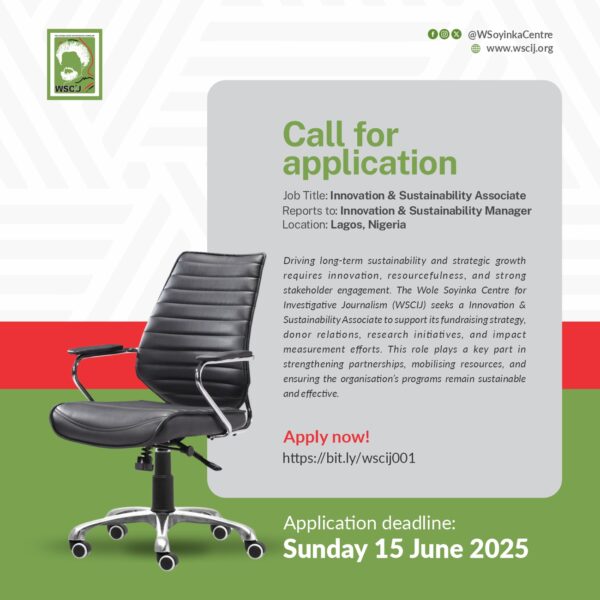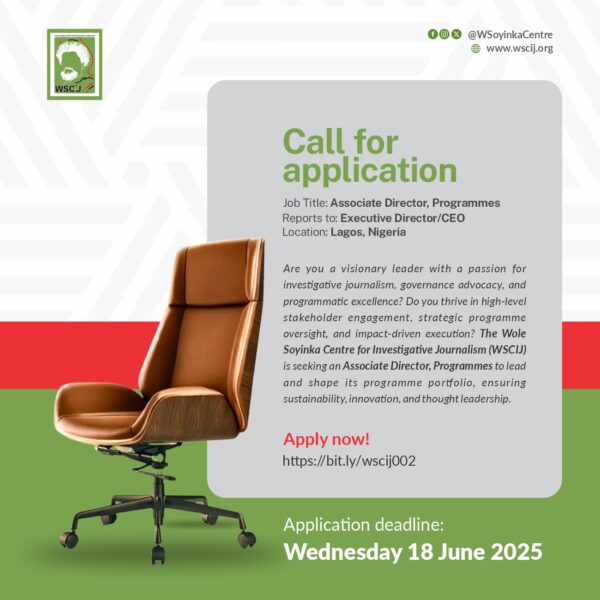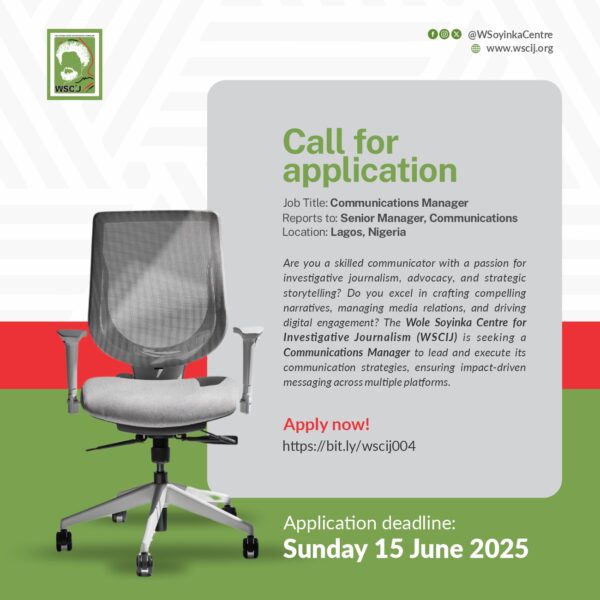Twelve more reporters have been commissioned by the Wole Soyinka Centre for Investigative Journalism (WSCIJ) following a virtual training held Thursday, 20 May 2021 as part of the Free to share initiative of the organisation.
In his opening remarks, Adeolu Adekola, WSCIJ’s Senior Programme Officer, gave a recap of the progress made on the project. He stated that WSCIJ has so far commissioned thirty-eight reporters who have published twenty-three stories including photos and cartoons on the connection between COVID-19 and a wide range of issues such as health, education, gender, poverty, water, vaccine, palliative distribution, sanitation, and hygiene. He then stressed the need for reporters to apply the lessons from the briefing to implement their pitched stories.
Ajibola Amzat, one of the facilitators and Editor at the International Centre for Investigative Reporting (ICIR), highlighted the intersection between data, reporting and writing while taking the participants on how to leverage data for evidence-based investigative reporting. He stated that there are stories in data and reporters should learn to use Excel for analysis. Comparing investigative journalists to evidence collectors, he reiterated the need to verify evidence before telling a story. On writing, he emphasised the need to be coherent, and avoid superfluous writing and flowery language.
On Access to information and COVID-19, Funke Treasure-Durodola, Lead Consultant, Illuminate Nigeria Development Network, expatiated on the need for openness and transparency in promoting access to information. According to her, it is the responsibility of the media to look for unusual stories. She recommended some pertinent areas for the reporters to focus their stories on, including the Universal Access to Information, COVID-19 and misinformation and the Freedom of Information Act.
On his own part, Femi Folorunso, Development Officer, Creative Scotland, provided tips to reporters on interrogating and reporting government policies in a pandemic. He noted the need to identify, research and write stories that are comprehensible and meaningful to readers.
Finally, Moji Makanjuola, Executive Director, International Society for Media in Public Health, raised the need for the reporters to go beyond the usual and dig deeper and wider in their reportage to educate the public.
The training also featured a breakout session where reporters had one-to-one discussion with their assigned mentors who helped to refine their story ideas into investigative pieces, providing them feedback on their pitches.
The Free to share initiative is geared at broadening the scope of freedom of expression through engagements on media ethics and accountability journalism. The pilot project under the initiative is interrogating the intersection between COVID-19, access to information and misinformation through data-driven, human interest investigative stories. The project is implemented in partnership with Free Press Unlimited (FPU) as part of the ‘COVID-19 response in Africa: Together for reliable information project’, funded by the European Union (EU).

